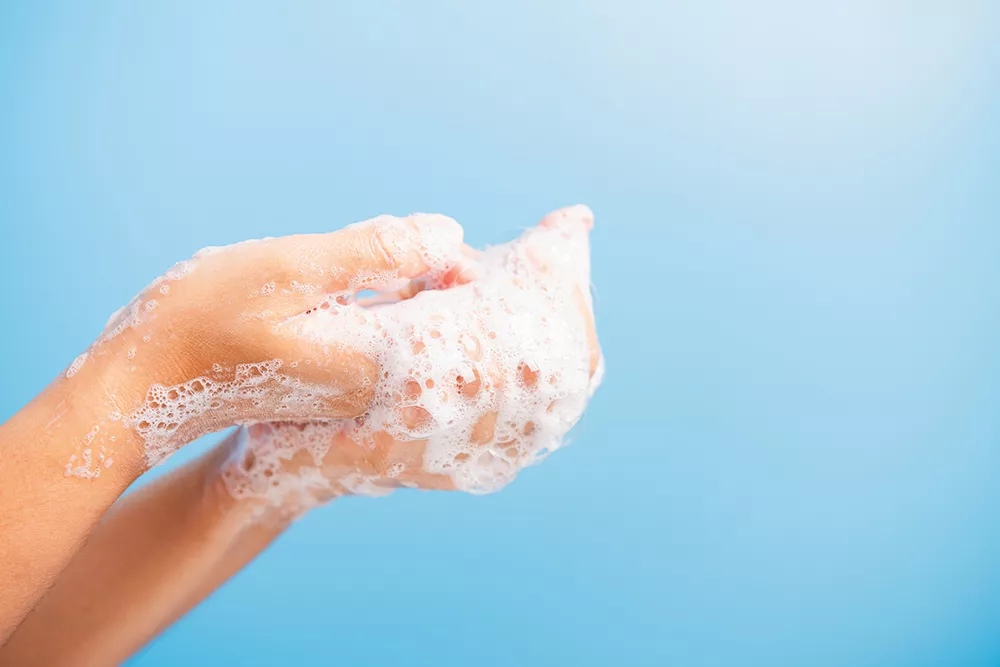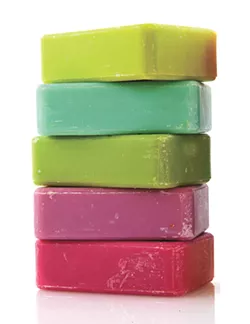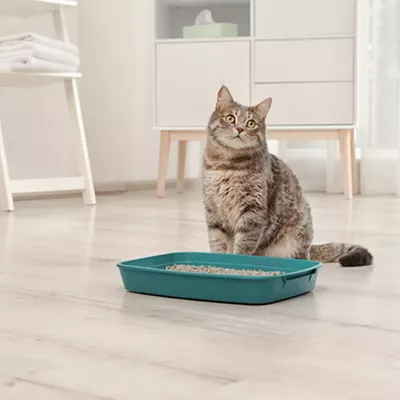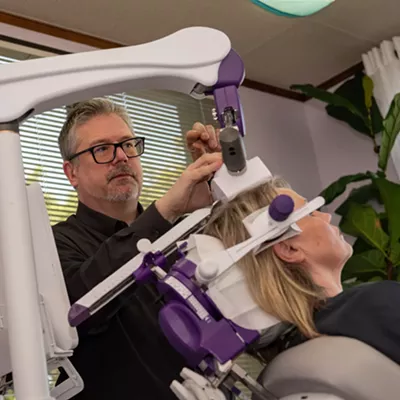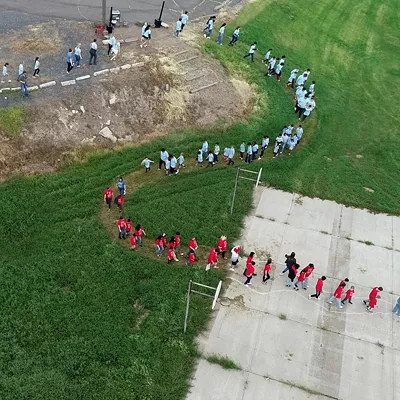Soap has been the star of many a newscast in coronavirus times, but exactly what is it and how does it work?
At its most basic, soap is a mixture of some kind of oil and an alkali, such as salt or more commonly lye, that hardens when mixed properly. As you lather up, the soap bonds with whatever is on your skin. Rinsing literally washes away everything, germs included.
In use by humans as far back as 2800 BC, soap is not difficult to make and has been a boon to the DIY set looking to customize what comes in contact with the body's largest organ — skin. Soapmaking options are endless, from types of oil, fragrance, and colorants to the look and feel of bath bars and bombs.
Local Greencastle Soap, for example, has soap making supplies and classes, which is where Beauchamp & Chase Luxury Soaps founder Genesis Veronon first got a whiff of what would become a new business venture. Although he was in the music industry at the time, Veronon was intrigued by the essential oil display at Greencastle and decided to try his hand at soapmaking.
He made his first bar, the Classic Clean, in 2007, featuring sandalwood and citrus oil. By 2019, he'd created around a dozen signature B&C bars and bombs, all made with olive, palm and/or coconut oil.
"What makes us different is all of our blends are original," says Veronon, who collaborates with local makers and outlets to sell his soaps online, as well as through BeYOUtiful Bath Bombs and More, and at Terrain's From Here in River Park Square.
Although all soaps are, to some degree, good for getting things clean, soaps that claim to be better because they're antibacterial may actually be harmful. One common ingredient, triclosan, is found in such products as toothpaste, cosmetics and even clothing, yet the Food and Drug Administration banned over-the-counter use in 2016.
More importantly, antibacterial soaps available at stores, which are not the same as those used by health care providers, may actually be no more effective than thorough handwashing, according to several studies. The key, says the Centers for Disease Control, is being thorough: warm water, plenty of soap, and all the parts of the hand (back, in between fingers, under nails). As to how long you should wash your hands, the CDC advises 20 seconds, or long enough to sing "Happy Birthday" twice. Consider that a gift to yourself.

